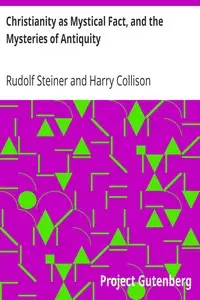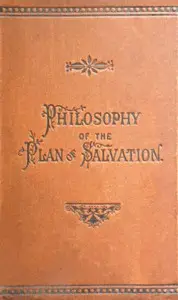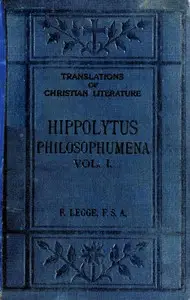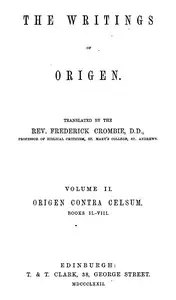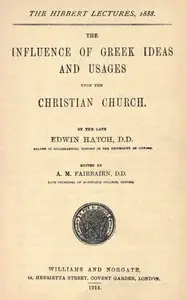"The Writings of Clement of Alexandria, Vol. 2" by Saint Clement of Alexandria is a religious and philosophical work discussing early Christian ideas. This book looks at what it means to have faith, to know things, and to be a good person according to Christian beliefs. The author argues against non-Christian philosophies and tries to show how some parts of those beliefs are twisted versions of older, sacred stories. Clement of Alexandria believes that real knowledge only comes through faith, not just thinking or learning, and says that faith is needed to truly understand God. The book examines different ideas about philosophy and explains why it’s wrong to ignore the wisdom of the Christian scriptures. Ultimately, the purpose is to promote Christian beliefs and encourage those who may be against Christianity to learn more about the Christian faith.
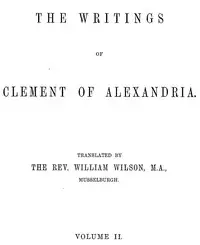
The writings of Clement of Alexandria, Vol. 2 (of 2)
By of Alexandria Clement
Explore an ancient argument where faith, not just reason, is the path to truth, challenging long-held philosophical beliefs.
Summary
About the AuthorTitus Flavius Clemens, also known as Clement of Alexandria, was a Christian theologian and philosopher who taught at the Catechetical School of Alexandria. Among his pupils were Origen and Alexander of Jerusalem. A convert to Christianity, he was an educated man who was familiar with classical Greek philosophy and literature. As his three major works demonstrate, Clement was influenced by Hellenistic philosophy to a greater extent than any other Christian thinker of his time, and in particular, by Plato and the Stoics. His secret works, which exist only in fragments, suggest that he was familiar with pre-Christian Jewish esotericism and Gnosticism as well. In one of his works he argued that Greek philosophy had its origin among non-Greeks, claiming that both Plato and Pythagoras were taught by Egyptian scholars.
Titus Flavius Clemens, also known as Clement of Alexandria, was a Christian theologian and philosopher who taught at the Catechetical School of Alexandria. Among his pupils were Origen and Alexander of Jerusalem. A convert to Christianity, he was an educated man who was familiar with classical Greek philosophy and literature. As his three major works demonstrate, Clement was influenced by Hellenistic philosophy to a greater extent than any other Christian thinker of his time, and in particular, by Plato and the Stoics. His secret works, which exist only in fragments, suggest that he was familiar with pre-Christian Jewish esotericism and Gnosticism as well. In one of his works he argued that Greek philosophy had its origin among non-Greeks, claiming that both Plato and Pythagoras were taught by Egyptian scholars.


